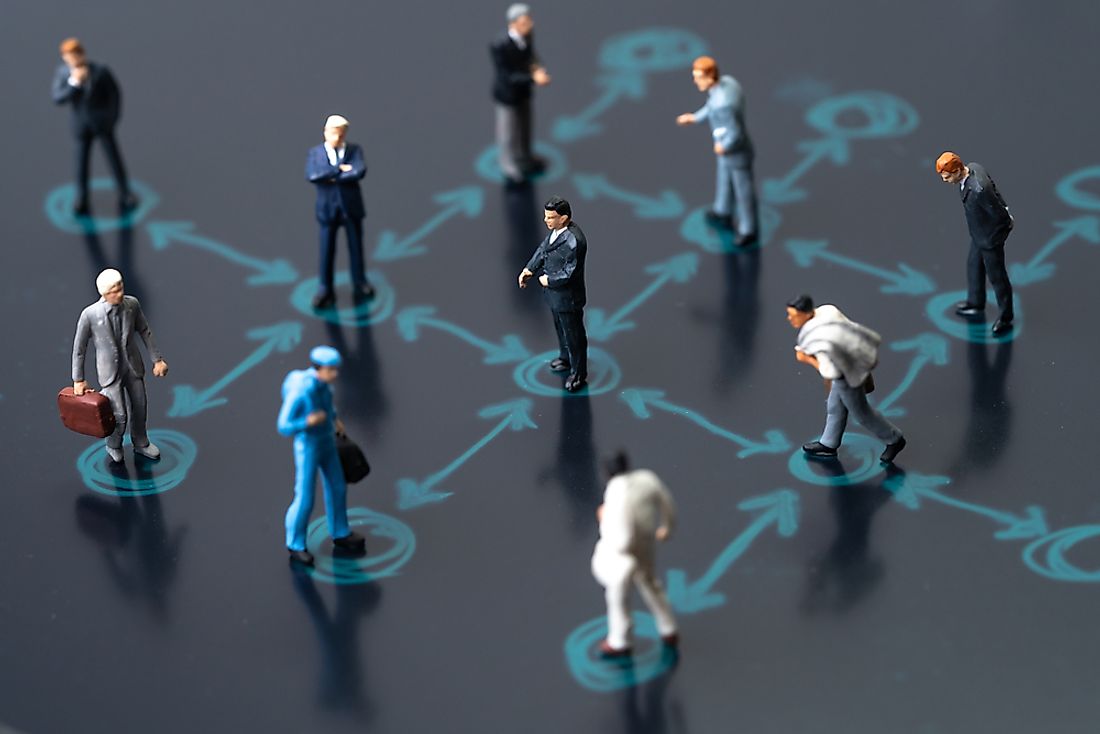
These last few weeks, you might have heard mentions of the phrase “social distancing” and how it is one of the most crucial factors in controlling the spread of the Covid-19 virus. Social distancing means precisely what it says – to distance yourself socially from other people.
These last few weeks, you might have heard mentions of the phrase “social distancing” and how it is one of the most crucial factors in controlling the spread of the Covid-19 virus. Social distancing means precisely what it says – to distance yourself socially from other people.
It is the practice of reducing physical contact, avoiding crowded spaces, public gatherings, and maintaining distance while waiting in line at the supermarket. Social distancing helps because it reduces the chances of further spreading of the Covid-19.
Keep About 6 Feet Of Space
Just as we were handling the negative effects of social media, and their encouragement of isolation and loneliness in people, Covid-19 forces us to take a step back and further isolate ourselves from other people, this time physically. It looks like humanity cannot catch a break! Social distancing has now become of crucial importance because of the way Covid-19 spreads among people. Every time we cough, sneeze, and talk close to another person, there is a danger of spreading the coronavirus, and this is where our “new” social etiquette comes in play.
Next time you find yourself in a supermarket or a drugstore, keep in mind that you should keep about 6 feet of space between you and the other person, as well as be conscious of your coughing, sneezing and hand hygiene. Handshakes should be avoided, masks should be worn, and distances should be kept.

This is specifically important for people with compromised immune systems because they are more prone to various complications caused by a coronavirus. People with chronic medical conditions (ex. diabetes, lung disease, heart disease, high blood pressure) should be extra cautious with regards to how they behave in social settings. They should avoid public gatherings of any kind, and keep the physical contacts at minimum, going outside only when it is truly necessary.
What is self-quarantine?
People who have been exposed to the new coronavirus and who are at risk for coming down with COVID-19 might practice self-quarantine. Health experts recommend that self-quarantine lasts 14 days. Two weeks provides enough time for them to know whether or not they will become ill and be contagious to other people.
You might be asked to practice self-quarantine if you have recently returned from traveling to a part of the country or the world where COVID-19 is spreading rapidly, or if you have knowingly been exposed to an infected person.
Self-quarantine involves:
- Using standard hygiene and washing hands frequently
- Not sharing things like towels and utensils
- Staying at home
- Not having visitors
- Staying at least 6 feet away from other people in your household
Once your quarantine period has ended, if you do not have symptoms, follow your doctor’s instructions on how to return to your normal routine.
What is isolation?
For people who are confirmed to have COVID-19, isolation is appropriate. Isolation is a health care term that means keeping people who are infected with a contagious illness away from those who are not infected. Isolation can take place at home or at a hospital or care facility. Special personal protective equipment will be used to care for these patients in health care settings.
Now Is The Time To Use Videocalls
You may find these new measures unreasonable of unpractical, but they are for your good, as well as the good of your family and your local community. It does not mean you have to be quarantined in your home all the time (unless you were instructed so by the medical authorities of your country). It means you should and need to take that extra effort to adapt your behavior in social surroundings and reduce contact with other people.
If you are fortunate enough, you should work from home and cancel or postpone any business meetings you might have, as well as any personal group gatherings and events such as birthdays and celebrations. It is generally alright to meet up with your friends if they are symptom-free, but try to keep it to a minimum, preferably in less crowded places.
It can be hard to distance yourself from some people, especially your love ones, but there is always an alternative. Fortunately, most people nowadays have the means and the ability to use technology that enables those alternative ways of communication. Maybe it is time to hit that video call button on your smartphone or laptop and show your friends and loved ones you still care, even in the dark times of Covid-19.
What is social distancing?
Social distancing is the practice of reducing physical contact, avoiding crowded spaces, public gatherings, and maintaining distance while waiting in line. Social distancing helps because it reduces the chances of further spreading of the Covid-19.
The post What Is Social Distancing And How It Helps Against Covid-19? appeared first on Top Fourteen.
source https://fourteen.online/what-is-social-distancing/
from Dr. Linex https://ift.tt/2WuVLRT
via IFTTT
No comments:
Post a Comment